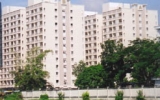‘Vietnam is a success story,’ says WTO chief
While the 19th World Economic Forum (WEF) on East Asia was meeting in HCM City on June 7, VietNamNet had an opportunity to talk with WTO General Director Pascal Lamy about Vietnam’s three years of WTO membership.
Lamy told VietNamNet that three years joining the WTO, Vietnam managed many tasks well. “It is important now to train workers and managers, raising their skills. If you can do that, the opportunities are wide open for Vietnam,” he said.
The Vietnamese economy was hammered in the recent economic crisis but Vietnam has overcome it, Lamy judged. “The lesson from that is that open economies are sturdier and more resiliant in the face of a crisis.”
VietNamNet: As Vietnam has integrated into the global market, it has faced many challenges, as well as opportunities. On balance, how’s Vietnam doing?
WTO Chief Pascal Lamy: There’s been a big surge in foreign investment capital (FDI) inflow since Vietnam joined the WTO three years ago. It is huge, taking into account the [still relatively low] quality of human resources. This is not theory but the fact. See the growth that Vietnam has achieved!
VietNamNet: As a WTO member, Vietnam still must face trade barriers set up by big economies like the US or the EU. It seems that the bigger economies have the upper hand. What opportunities are available for small economies like Vietnam in WTO, especially in commercial disputes?
Lamy: The newly emerging economies like China, India and Brazil have all benefited more when they have access to the EU, US and Japanese economies. There are some problems, certainly but on balance they benefit.
VietNamNet: After WTO accession, Vietnam has negotiated and implemented free trade area agreements (FTAs) with some countries and regions. Is there a lesson that Vietnam should learn from its WTO experience that it use when it joins FTAs?
Lamy: FTAs are “WTO plus” agreements. They go further than Vietnam’s commitments when it entered the WTO. Opening its market more widely as a member of ASEAN, Vietnam will benefit from ASEAN’s integration and association process.
The challenge is to set up national policies that increase commercial strength. Part of the answer for this problem lies in infrastructure, hi-tech and especially education and training.
Becoming a WTO member, Vietnam has opportunities to raise the quality of its human resources, not just the skills of people in international trade.
VietNamNet: Free trade has created opportunities for everyone but it has also injured the poor. The gap between the rich and the poor is widening. What can Vietnam do to ensure the gains are shared by both the rich and the poor?
Lamy: That’s a matter of how you implement your internal policies: build infrastructure, strengthen commerce, transfer technology, and implement programs that transfer and distribute these gains to all segments of society.
WTO is about making the pie bigger. We don’t tell you how to share it. That’s the business of national leaders.
VietNamNet: Countries like Vietnam are seeking new models of development since the global financial crisis. What is your advice for Vietnam?
Lamy: The key here is improving the quality of human resources, including labour skills, aiming at transitioning from an economy that processes and exports raw materials to a value added economy. You should learn from South Korea. That’s a good example.
VietNamNet: You once said that “Vietnam is a rising star.” Is that still true?
Lamy: Of course. Look at the numbers; compare Vietnam of ten years ago and Vietnam today. You haven’t made a great leap but you have gained more than you’ve lost.
VietNamNet



